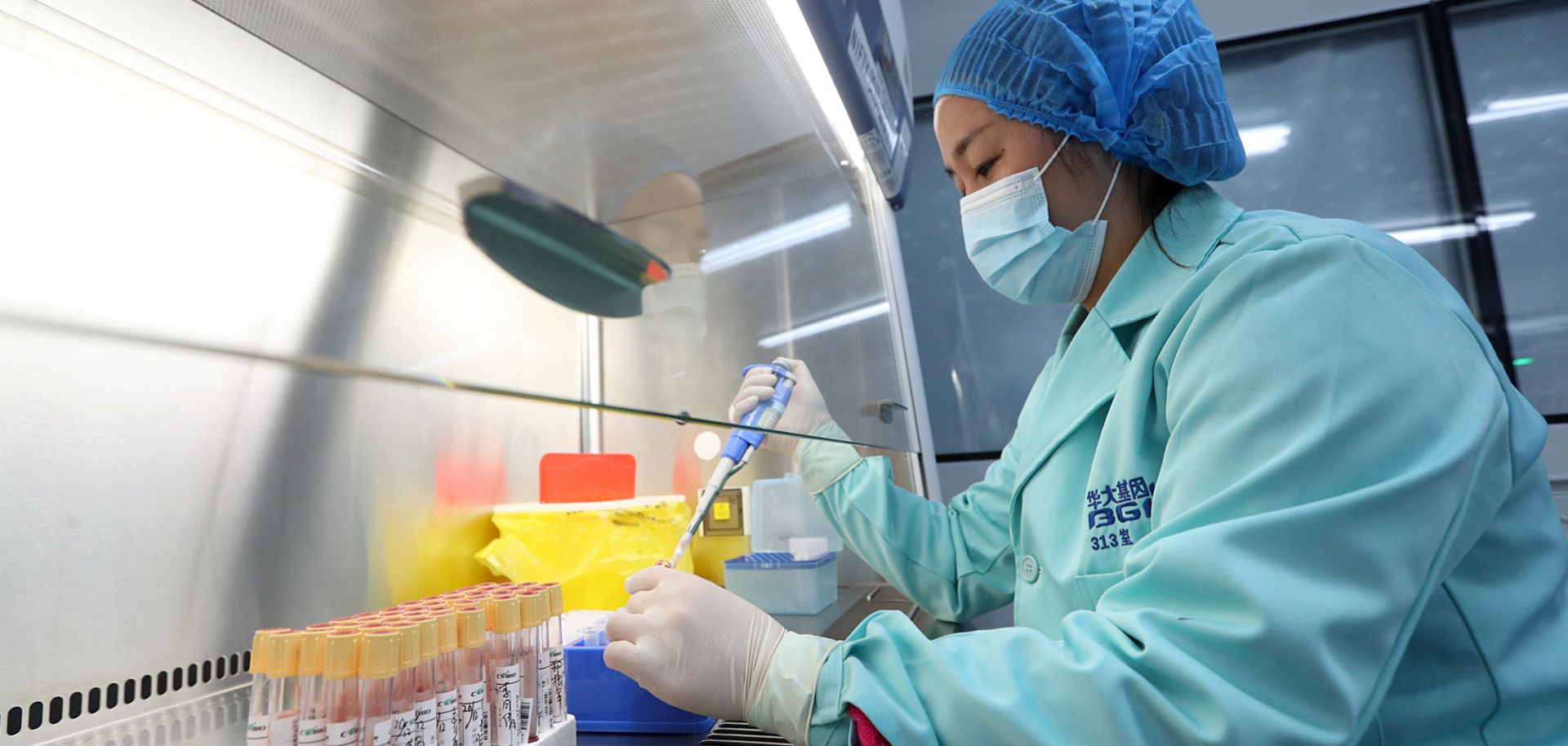GLOBAL PERSPECTIVES
Is China Effectively Reforming Its Biotechnology Laws?

Dec 6, 2019 | 11:00 GMT

A researcher works in a Beijing Genomics Institute laboratory in Kunming, China, on Dec. 26, 2018. China has publicized a series of new regulations since a Chinese scientist claimed to have genetically engineered twins last year, but has not accounted for the scientist's alleged feat.
(Visual China Group via Getty Images)
Highlights
- Chinese scientist He Jiankui claimed last year that he had used the CRISPR gene-editing tool to engineer twins with immunity to HIV, raising new doubts about the ethical integrity of China's biotechnology sector.
- To address its apparent shortcomings and support its biotech strategy, China has announced a series of regulations and legal reforms over the past year to reinforce existing prohibitions against reproductive human genome editing.
- Despite the public campaign to counteract negative impressions, China has offered no full accounting of how He managed his alleged feat; how effectively Beijing has addressed the conditions that allowed it to happen is unknown.
Subscribe Now
SubscribeAlready have an account?
